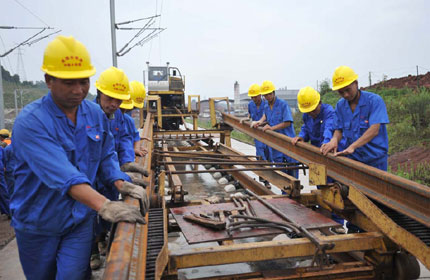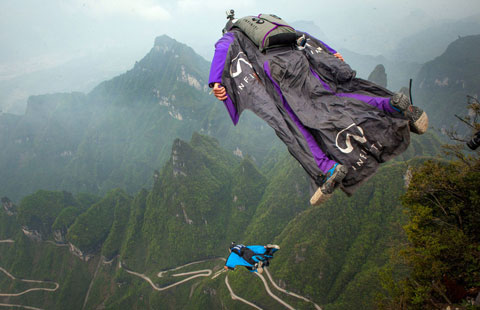Italian EU Presidency: pushing for greater unity
Updated: 2014-07-11 12:26
By Alberto Bradanini (Italian Embassy in Beijing)
|
|||||||||||
Following is an Article by the Ambassador of Italy Alberto Bradanini
on the Italian EU Presidency
On 1st July 2014 Italy took over from Greece the rotating Presidency of the Council of the European Union. The task comes at a time of great challenges. Europe has come to a crossroads. The June European Parliament elections rang an alarm bell impossible to ignore. The strong showing of anti-EU parties across the continent and especially in countries such as France, Britain and Denmark indicated a level of disappointment over the recent EU course bordering on anger that is serious and beyond anticipations.
The economy first. The EU needs to win back people tired of years of economic decline and stagnation. Italy believes that the way out resides in fiscal flexibility in exchange for structural reforms in order to make the European economy more competitive on the world stage. The Italian Presidency will therefore stimulate initiatives aimed at delivering growth and creating job opportunities. With more than 26 million youth currently unemployed in the EU the social disaster of a lost generation of frustrated young Europeans must be avoided at all costs.
Future European development hinges on a model of sustainable growth. As the host of the next World Expo in Milan in 2015 under the banner «Feeding the planet: energy for life», Italy will press for a policy framework that integrates environmental sustainability objectives and opportunities for long-term economic recovery and more green jobs.
Also paramount among Italy's Presidency priorities is the issue of migration. Italy is on the front line of a humanitarian disaster unfolding under European eyes. The Italian Navy weekly rescues thousands of refugees in the Southern Mediterranean waters. We feel that there must be a stronger commitment to increase intra-EU cooperation and solidarity in managing migration and asylum policies.
Immigration flows are the by-product of regional crises happening at the EU threshold. Italy feels that the European Union must play a more assertive role on the international stage. Our Presidency will therefore try to strengthen the EU posture on the international stage in relations to crises in North Africa, the Middle East and the Ukraine.
Responses to immigration challenges cannot be disjointed from a pro-active global trade policy. Strengthening links between Europe and Africa and the emerging Asian economies plays a pivotal role in this approach. With specific regards to Asia, Italy will host on October 16-17 in Milan the Asia- Europe Meeting Summit involving 52 heads of governments and senior business leaders from the two continents.
A message came out loud and clear from the recent European Parliament election. European institutions need to be closer to European citizens. The European Parliament, the European Council and the Commission are called more than before to deliver concrete results and to meet the European citizens' expectations for a less impersonal and bureaucratic Europe.
They demand a more integrated and effective EU in areas of common interest. A Union which is less intrusive in domains which can be more effectively dealt with at the level of Member States or at regional and local levels. National Parliaments demand to participate more actively in the European decision-making process.
The above challenges will require a sustained effort that of course will be longer than the semester of the Italian Presidency. But as a founding member of the European integration project Italy feels a special responsibility in giving fresh momentum to a great project in which so much we have invested since 1945. We will do that riding on the favourable momentum given to Italian pro-Europe parties which - contrary to other EU States – have received from the recent elections a clear mandate for a fresh start to the European integration process.
As Italy's Prime Minister Matteo Renzi noted '"Europe cannot simply be a place of codicils, quibbles, parameters and constraints or a no-man's land of bureaucracies". A hundred years ago human slaughter on an unprecedented and global scale was ignited by shots fired in Sarajevo. From the ashes of two World Wars Europe found the vision and the drive to build a prosperous area of peace and prosperity.
Europeans – and Italians in particular – used to be inspired by the project of European integration that has made war unthinkable among the 28 EU State Members. The way out from the current EU doldrums lies in more cohesion. It is time to reclaim the vision and the hope that brought us so forth and push for greater unity among Europeans.
Today's Top News
Van Gaal: I taught Romero how to stop penalties
Snowden files asylum extension
Israel steps up offensive, 53 die
Leading lady a true legend
UN chief calls for political horizon
For Brazil fans, a debacle worse than 1950
Tesla faces suit over trademark
Rich eye overseas game hunting
Hot Topics
Lunar probe , China growth forecasts, Emission rules get tougher, China seen through 'colored lens', International board,
Editor's Picks

|

|

|

|

|

|





